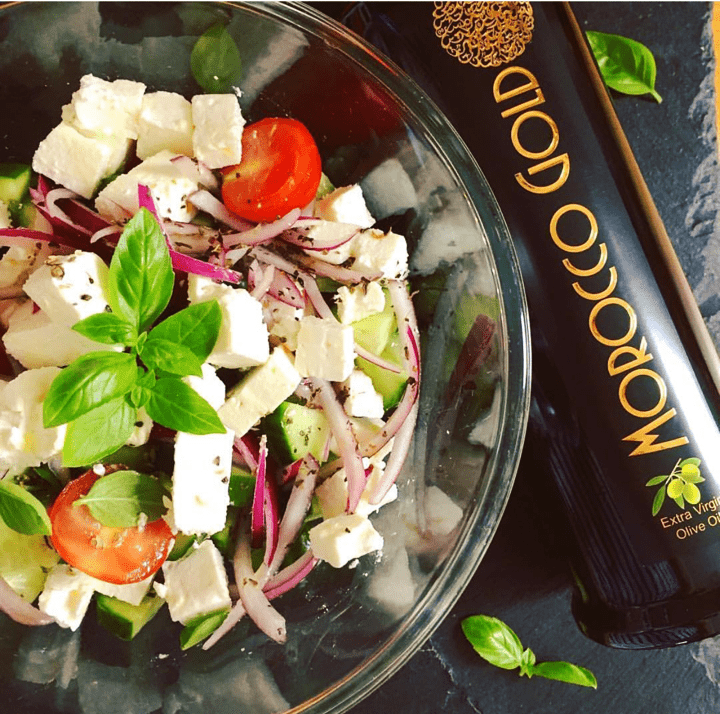Study Backs Mediterranean Diet Including Olive Oil May Help Reduce Dementia Risk

Summary
Contents
- Recent study Shows Olive Oil Fuelled Mediterranean Diet May Help Reduce Dementia Risk
- How Could the Mediterranean Diet Lower Dementia Risk?
- What Role Does Extra Virgin Olive Oil Play In Reducing Dementia Risk?
- The Science Behind the Mediterranean Diet, Extra Virgin Olive Oil and Cognitive Health
New Study Shows Olive Oil fuelled Mediterranean Diet May Help Reduce Dementia Risk
Recent findings suggest that the Mediterranean Diet, which emphasizes fruits, vegetables, whole grains, and healthy fats like extra virgin olive oil, could be crucial in reducing dementia risk. Researchers from Newcastle University in England collected data from more than 60,000 participants for over 10 years. They have discovered that individuals adhering to this diet saw a significant decline in their likelihood of developing dementia.
The Mediterranean Diet is not a new concept; it has long been celebrated for its heart-healthy benefits and potential to prevent chronic diseases. However, the connection between this diet and reduced dementia risk brings a fresh perspective on its overall health benefits. With the aging population growing, these findings could be a game changer for many.
This study highlights the importance of dietary choices in maintaining cognitive function. By integrating the Mediterranean Diet into daily life, individuals can take proactive steps towards a healthier, sharper mind.
According to a summary of the study in MindBodyGreen, the participants were assessed for genetic risk factors for dementia, and they also completed a dietary assessment that allowed the researchers to score them based on how much their diet consisted of foods in the Mediterranean diet plan.
The results showed that after 10 years, 882 participants developed dementia. When the researchers looked to see whether the patients’ diets were associated with a higher or lower risk of developing dementia, they found that those eating a Mediterranean diet (or the closest to it!) had a significantly lower risk.
The results showed that those on a Mediterranean-like diet had up to a 23% lower risk of developing dementia compared with those not on the diet.
What’s more, the Mediterranean diet affected participants who had genetic risk factors for dementia just as much as it affected those who didn’t have those genetic risk factors, meaning nutrition is a powerful tool even if you’re at a higher risk of the illness.
John Mathers, Ph.D., study author and professor of human nutrition at Newcastle, noted in a statement, “The good news from this study is that, even for those with higher genetic risk, having a better diet reduced the likelihood of developing dementia.”
Mathers continued, “Although more research is needed in this area, this strengthens the public health message that we can all help to reduce our risk of dementia by eating a more Mediterranean-like diet.”
How Could the Mediterranean Diet Lower Dementia Risk?
The Mediterranean Diet’s potential to lower dementia risk is linked to its nutrient-rich components. This diet is abundant in antioxidants, anti-inflammatory compounds, and healthy fats, all of which play a role in protecting brain health.
Firstly, the diet’s high antioxidant content helps combat oxidative stress, a key factor in aging and neurodegenerative diseases. Fruits and vegetables, staples of the Mediterranean Diet, are packed with antioxidants like vitamins C and E, which neutralize harmful free radicals in the body.
Secondly, the anti-inflammatory properties of the Mediterranean Diet cannot be overstated. Chronic inflammation is a known contributor to cognitive decline. The diet’s emphasis on anti-inflammatory foods, such as leafy greens, nuts, and olive oil, helps reduce inflammation in the body, potentially protecting against dementia.
Lastly, the healthy fats in the Mediterranean Diet, particularly those from extra virgin olive oil, support brain health. Omega-3 fatty acids, found in abundance in olive oil, fish, and nuts, are essential for cognitive function and may help prevent the development of dementia.
What Role Does Extra Virgin Olive Oil Play In Reducing Dementia Risk?
Extra virgin olive oil is a star player in the Mediterranean Diet, and its benefits extend to reducing dementia risk. This oil is rich in monounsaturated fats and polyphenols, compounds known for their health-promoting properties.
Monounsaturated fats, the primary fat in extra virgin olive oil, are known to improve heart health by reducing bad cholesterol levels. A healthy heart ensures efficient blood flow to the brain, which is crucial for optimal cognitive function. By maintaining cardiovascular health, olive oil indirectly supports brain health.
Polyphenols, another component of extra virgin olive oil, possess strong antioxidant and anti-inflammatory properties. These compounds help protect brain cells from damage, reducing the risk of neurodegenerative diseases like dementia.
Additionally, oleocanthal, a phenolic compound found in extra virgin olive oil, has been shown to clear beta-amyloid plaques from the brain. Beta-amyloid plaques are associated with Alzheimer’s disease, and their removal could be key in preventing cognitive decline.
So, how can we make our diet more Mediterranean-like?
Eat more fish: Fish is a staple of the Mediterranean diet, which contains high levels of healthy anti-inflammatory fats. Reach for omega-3-rich options like salmon, herring, or sardines. Not that into fish? Try supplementing with an omega-3 supplement instead.
Eat a diverse range of fruits and vegetables: One of the major characteristics of the Mediterranean diet is a colorful plate of fruits and veggies. This helps provide your gut microbes with a diverse range of food and gives you a dose of antioxidants.
Avoid processed foods: A Mediterranean diet comprises whole foods. It doesn’t involve many packaged or processed foods (think a long, lazy lunch versus a grab-and-go meal). Try to avoid highly processed foods, which often contain added sugars, refined grains, trans fats, and refined vegetable oils (soybean oil, corn oil, etc.)
The Science Behind the Mediterranean Diet, Extra Virgin Olive Oil and Cognitive Health
Studies have consistently supported the Mediterranean Diet’s role in promoting cognitive health. Research indicates that individuals following this diet have a lower risk of Alzheimer’s disease, cognitive decline, and other forms of dementia.
One study conducted over four years followed participants who adhered to a Mediterranean Diet. Results showed that these individuals experienced slower rates of cognitive decline compared to those on a standard diet. The diet’s combination of nutrients appears to provide a synergistic effect, offering comprehensive protection for the brain.
Another study highlighted the impact of the Mediterranean Diet on brain structure. Participants who followed the diet were found to have greater brain volume and fewer markers of brain aging. This suggests that the diet not only preserves cognitive function but also supports brain health at a structural level.






